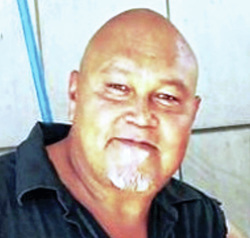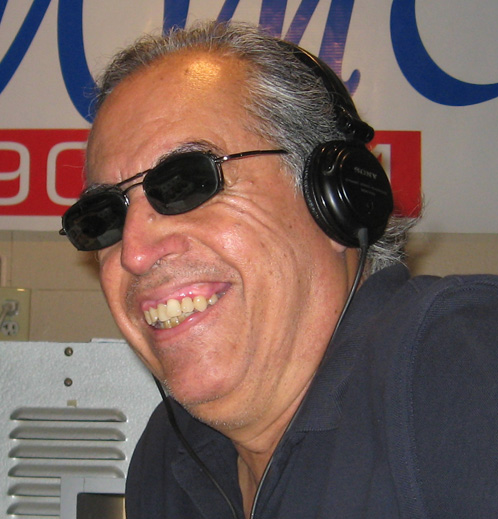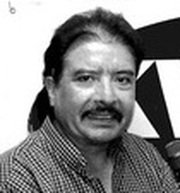Val Verde County DWI Specialty Court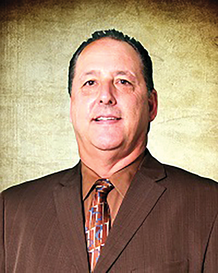 The criminal justice system is perceived as a punitive dead end that offers little hope to the person arrested or criminally charged. Even when the offense is a misdemeanor or, in particular, a DWI. But that narrative has changed in Val Verde County. The Val Verde County DWI Specialty Court helps those who find themselves in a DWI situation. The specialty court is a state-funded program — through a grant from the governor’s office — that provides services to Val Verde County residents who could be or who are, in the criminal justice system due to a DWI. “The difficulty is you’re dealing with individuals that have issues — not all of them — with alcohol and, or, drugs,” said Val Verde County Court at Law Judge Sergio Gonzalez. “Everything we do, it’s a team approach. “Everything we do is evidenced based…means that it’s worked before and it’s all data-driven…the percentages and the figures that have come out of this data is reflective that it’s an approach that works.” The DWI specialty court team includes Gonzalez, a defense attorney, a prosecutor, an assigned probation officer, a licensed professional counselor, a coordinator and a case manager. DWI offenders can enter the specialty court program as participants after an arrest and prior to charges being filed, (pre-adjudicative) or after charges, have been filed (post-adjudicative). They’re referred to the DWI court by a magistrate or justice of the peace. Gonzalez said the specialty court runs parallel to the criminal case where it monitors the person, performs risk assessments via urine analysis or swabs to detect specific levels of alcohol or drugs, and furnishes counseling. The court meets every two weeks and is well-equipped with updated information relevant to program participants. “It’s worked out pretty good and provided a lot of services that typically you would never have for individuals that were in the criminal justice system for DWI,” he said. The Val Verde County Specialty Court began in 2015 and is funded annually by the grant. Initially, 10-20 participants were in the court program, and now there are 47 with the total amount capped at 50 by the state. The court requires yearly authorization from the commissioners court to apply for the grant. People who don’t reside in Val Verde County or have been arrested for drug-related or violent crimes are not eligible for the specialty court program. Also, potential participants are denied entry into the program if the team decides not to accept them after carefully evaluating two initial assessments that they’re required to undergo. Another aspect of DWI circumstances is the suspension of a driver’s license. Anyone in Texas arrested for DWI will have their driver’s license suspended, Gonzalez said. The court encourages participants to get their license back as soon as possible. And it can help a participant recover normal license status. “If we accept them into this program, we can write a letter to the justice of the peace and say, ‘Hey, this is what the program consists of, this is what we do. In lieu of this person successfully being a part of this program, are you willing to assist them? Either reducing their obligations to you, doing away with it altogether, as long as they successfully complete the program.’ And in some cases, they do,” he said. Ultimately, the specialty court’s mission is to enhance public safety and reduce recidivism by offering to assist county residents who are program participants a chance to change their lives. “We try and get their trust to let them know, ‘Hey, we’re here for you. We’re able to help you. Let us help you,’” Gonzalez said. Face To Face: Alfredo "Fred" Carranza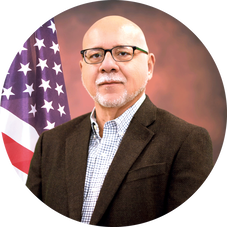 The Texas Times recently caught up with Del Rio City Councilperson-District 1, Fred Carranza, to discuss municipal business. While Carranza is looking forward to the potential implementation of future projects — constructing a greatly needed new community gym and an additional international bridge — there are still some issues and ongoing undertakings of immediate concern to folks. Carranza graciously answered our questions. [The interview has been edited due to length restrictions. TT: What is the city’s singular, primary issue and the plan to address it? FC: The primary issue I think that we’re currently facing…the Covid, of course. We have to talk about Covid, right? There’s no way around that. But I think we’ve done a pretty good job with it now that we’re getting enough vaccines. I know in the last couple of weeks we’ve gotten several thousand vaccines…we need to get as many people as we can two doses…we’ve got every kind of vaccine available. But that’s been a struggle because everybody needed it at first. We were trying to get the elderly done. Now we’ve opened it up to everybody…and I’m hoping by July that we’ll be pretty well caught up with the majority of citizens who want to get it already—vaccinated. TT: What is the status of the road and infrastructure improvements? FC: On the streets, I think that of course, there’s more work to do. That the city as a whole, we’ve invested millions of dollars in getting not just the streets but the infrastructure renewed or upgraded…the last five years I think we invested probably $20 million on streets…we still have some pockets and then you have to start redoing streets probably up here on the north side that are already getting a little older. We’ve worked on San Felipe quite a bit…we’re gonna be doing a bunch of streets on the south part of town because they’re in the greatest need right now. We did get the Qualia relief route done. That was long needed, and that was a project that had been there for 10 years or longer. I came on council and it was one of my priorities is to get that done and we were able to accomplish that with the support of the council. As we leave these projects behind longer and longer, the price gets more expensive and more expensive. TT: Other significant issues... FC: We’re also dealing with immigration…all of the immigrants that are coming across the border and how we’re gonna deal with that. The Chihuahua Center, the church group that’s out there, is doing an excellent job. We support them…we’ve been able to handle the numbers that we have now, but we’re always more worried that they’re gonna drop off more than the 100-150 a day. If they come and drop off 200 or 300, we probably don’t have enough transportation to get them out on the same day. Then we have to start housing people, feeding people, and that turns into a bigger problem…the federal government, I hope, will give us some help…at least reimburse us for the monies that we’re spending on a problem that really is what I believe is a federal problem and not the local City of Del Rio problem. We need to spend some money on a new city hall…many years that’s been pushed down the list…that’s gonna cost us about $15 million. We’re gonna need to invest some money…on the generators that we just had the big problem in the snowstorm…our wastewater treatment plant was down, the substation for the sewer system were down. That’s gonna cost us several million dollars. It’s a balancing act. Do we keep just doing the streets, or do we start taking care of some of the other things? I, for myself, feel like we need to take care of some of these other items. Covid-19 pandemic vaccinations are now becoming the norm in our society. At least temporarily. Del Rio and every other town and city across the country are attempting to achieve herd immunity through the promise of a shot or two.
Locally, thousands of folks have received at least one of their doses, but thousands more are awaiting the green light from the state, and it could be months before everyone is vaccinated. “We have to wait for the state…the guidelines to open us up 1C, (Phase 1C) which is going to be more to the general population, but that hasn’t opened yet,” said John Sheedy, emergency management director for the City of Del Rio. On March 15, the Texas Department of State Health Services (DSHS) rolled out Phase 1C, which opens up the vaccination to people between 50 and 64. Sheedy said a rough projection for the completion of the vaccinations is September but is basically contingent upon the availability of doses from the state, which requires enrollment in an allocation program for vaccine providers. Phase 1A and 1B of the vaccination program include people over 65, those with underlying medical issues, frontline health care workers, first responders, teachers, public transit and grocery store workers. In the early stages of the vaccinations, Val Verde Regional Medical Center administered the inoculations through its issued supply, but the city/county is now using their allotted vaccines to meet the demands of protecting the community against the deadly virus. “The hospital was the first vaccine provider,” he said. “You had to be a vaccine provider to issue the vaccine. The hospital then H-E-B and then some of the clinics like UMC (United Medical Centers), Cadena, have been awarded vaccine-provider status.” Sheedy said UMC was assigned additional vaccines, so the city has agreed to let them use the Del Rio Country Club for mass vaccinations. The Pfizer BioNTech vaccine has been the primary one administered, but the Moderna version is in use too, he said. The state is dispensing the vaccines. Is one better than the other? According to the Wall Street Journal, all three vaccines — Pfizer, Moderna and Johnson&Johnson — are effective. The efficacy of the Pfizer and Moderna shots was above 94% in late-stage trials, and Johnson&Johnson’s one-dose vaccine effectiveness measured 66%. The Wall Street Journal also said that Pfizer and Moderna had not conducted tests after the emanation of mutations, such as the South African strain. Apparently, studies demonstrated that the strain could evade the vaccines and work against it, the Wall Street Journal reported. As of March 17, nearly 8,500 have been inoculated, with one dose, and 4,200 fully vaccinated, Sheedy said. Approximately 9,000 have registered for the shots. Eligible citizens can learn more about vaccination registration at https://www.cityofdelrio.com/government/covid-19/covid-19-vaccine-distribution. Thousands of families nationwide have been struck by Covid-19 during the past 12 months, the contagion sparing some but ravaging others.
In Del Rio, one family was particularly walloped by the virus. Last July, José “Joe” Martinez, a retired U.S. Air Force master sergeant, became ill, and his wife, Tina Martinez, rushed him to Val Verde Regional Medical Center (VVRMC). Joe was afflicted with respiratory issues, including asthma said Tina. The 84-year old retiree tested positive for the virus and immediately went into quarantine at the Martinez home. Three days later, Tina got sick and subsequently tested positive. Then her 43-year old son Daniel Cerda became infected with Covid-19. The invasion of the coronavirus has rocked Val Verde County where 186 deaths have been attributed to the virus along with 7,548 cases as of Feb. 11, 2021, according to the Texas Department of State Health Services (DSHS). Virus mutations have now caused new strains that have been found in the United States. Health experts and officials are imploring the public to double down on their masks. A recently released report from the Centers for Disease Control and Prevention (CDC) indicated that dummies wearing two tightly secured masks in lab tests resulted in a 95% decrease in exposure to infectious aerosols. CNBC reported that White House Advisor Dr. Anthony Fauci said in January […] “if you have a physical covering with one layer, you put another layer on, it just makes common sense that it likely would be more effective. That’s the reason why you see people either double masking or doing a version of an N95.” Joe’s underlying condition didn’t help matters, and both Tina and Daniel had preexisting issues too. “I’m a diabetic, I have high blood pressure, and he (Joe) was always taking care of me for that reason,” she said. Joe was born in the Acapulco area of Guerrero, Mexico but grew up in Connecticut and then joined the Air Force. He retired to Del Rio and met Tina during the 1980s. They ultimately married. It was the second time for both. “It was just destiny, I guess,” she said. “Because he was divorced for a year and I had been divorced for a year…it was beautiful.” Joe settled into retirement, and Tina served on the Del Rio city council for two terms in the early 2000s representing the San Felipe area. Life was good. But then the crown-like virus disrupted their contentment and imposed itself on the family. Joe’s symptoms did not subside while quarantining at home, and his fever remained intact, so it was decided that he should go back to the hospital. His fever returned to normal during his second stay there, but his oxygen levels were low. Tina also returned to the VVRMC, going to the emergency room with concerns about how she was feeling. While there, a nurse informed her that Joe had gone into cardiac arrest and passed away. They had been together 35 years. “He was coming along real good except for that afternoon when he just went downhill and they couldn’t help him,” she said. “They did everything in their power that they could, but they couldn’t help him…they tried everything.” At the same time, her 43-year old son, Daniel, contracted Covid-19 but never came into contact with his parents Tina said. Two of her three sons have gotten the virus. Daniel was put into intensive care with pneumonia. And exacerbating his condition were blood clots and diabetes. But incredibly, he pulled through. “The doctor says it’s a miracle,” Tina said. “They didn’t expect him to live. He wasn’t gonna make it.” Tina’s mother suffered from diabetes, and congestive heart failure and, all three of her siblings died from congestive heart failure. “And I don’t know why, only the good Lord knows why, I do not have a heart condition as of now,” she said. Many in the world continue the effort of wrapping their heads around this killer virus pandemic, but substantive answers are elusive. Add Tina to that collective. “That virus, I don’t know…you never know,” she said. Face to Face: Steven T. Webb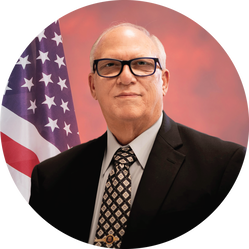 You’re never too far from home. At least in Steven T. Webb’s case. The newly elected City of Del Rio councilperson — at-Large, Place A — isn’t a native Del Rioan but feels connected to the Queen City. “The one thing that struck me about this town…it was very similar to where I was from…it was like coming home,” Webb told the Texas Times in a phone interview. Webb is serving his first term as an elected official recently winning a runoff election for the at-Large, Place A seat. With his love of the city pinned to his sleeve, he feels love in the form of progress is what the city needs. He believes it’s crucial and defined by economic growth. In other words, attracting business to Del Rio. “What can we do to make it better? What can we do to provide a better service as a city? What can we do to bring in businesses? How do we encourage people to come to Del Rio? And we’ve got a lot to offer,” Webb said. The city is not only on his sleeve but in his blood. After retiring from a nearly 34-year career with the Del Rio Police Department, Webb still found himself discussing citywide issues with residents. The suggestion was made that he run for office. But Webb retorted that he had no interest in being a “politician.” “Somebody says, ‘Why don’t you run for city council?’ and I was like, ‘But I’m not a politician. I’m a mover and shaker but not a politician,’” he said. But the person told him it wasn’t about being a politician, it was about caring. And Webb cares for Del Rio. He’s determined to make the city better. The former police officer who achieved the rank of captain believes his experience on the force has positioned him well for the duties of councilperson. His time spent as a member of local law enforcement in the community enabled him to garner invaluable insight into the city and its operations. “After working for the city for 34 years seeing the inner workings, seeing the community as a whole, I’ve probably driven every inch of the city,” Webb said. Originally from Parkersburg, West Virginia, he graduated from El Paso’s Irvin High School in 1970 and had planned to attend one of the service academies after receiving a nomination from the late Congressman, Henry B. González. But Webb changed course and enlisted in the U.S. Air Force, his service spread over South Dakota, Alaska, Thailand and lastly at Dyess Air Force Base in Abilene. Webb’s first visit to Del Rio was in the summer of 1973, and he came to the city permanently in March of 1974 feeling like he was led here but the clarity of purpose was absent from the equation. “There was just something about Del Rio when I first got here,” he said. “You get this weird feeling this is where you got to be. This is where you’re supposed to be. And you really don’t know the reason.” Webb is married to Linda Guanajuato Webb — board vice president of the San Felipe Del Rio Consolidated Independent School District — and has two adult sons and three adult stepdaughters. The nascent councilperson said he has visited all of the sites where city projects are being considered or are already underway and has studied every plan and visited with many city departments. “I have already visited departments who said… ’the city council never comes to visit us,’” he said. “I have to know what you do, how you do it, in order to make a determination on what you need and what we need to do for you as a council.” Webb says he is a hands-on person. He volunteered at the civic center last month, helping with Covid-19 vaccinations. “The more that you can be hands on in our community as a councilperson, the more the people will reach out to you and tell you what’s going on,” he said. But Webb still doesn’t have a crystalline answer to the reason why he is here. “If it’s God’s plan for me then that’s where it is.” And asked what he would like his legacy to be, he said, “Webb made Del Rio grow.” Dysfunction permeates all levels of politics, from the top of the federal heap to local city councils.
Del Rio is certainly not immune to it. Some would argue it is the epitome of bad government. Whatever the case may be, two new council members have a chance to steer a perceived wayward ship right. One of those is Alexandra Falcon Calderon, a native Del Rioan. In a city and county where incumbents frequently go appallingly unchallenged, and popularity seems to trump substance in contested races, nascent policymakers are a welcomed sight. Sworn in during November, Calderon represents District III, which she said needs some adjustments. “A lot of things have not been done in this district,” she said. “It’s been neglected.” Oversight or lack of prioritization have kept the district in need. “Communication is what’s lacking, and leadership…and working together is very much needed.” Supporting the cultural aspects of the community, specifically for the children, alleviating the volume of trash in the district and the development of small businesses are primary goals. “In reality, the whole of it is not to forget the south side of Del Rio,” she said. Calderon, a small business owner for more than 20 years, has always been very involved in the community. She is the president of the Del Rio Downtown Foundation, and locals have sought her advice on business, personal or civic-related issues throughout the years. She feels this has built a platform of trust within the community. These reasons compelled her to run for the city council seat. “The seat is coming up open. I’m a Del Rioan. I’m from District III. All my life, I’ve been District III…I live in the same house,” Calderon said. She ran her campaign without any staff, saying that direct contact with voters is a more effective way to cultivate rapport than to have a worker speak for you. COVID-19 required her to campaign heavily through social media and supplement it through print media. “I did it the best I could, and here I am.” “Here I am,” wasn’t so easy. Calderon barely won. The metaphorical margin of victory didn’t even measure the width of a ballot. Her race against the opponent, Silvia Ojeda, ended with 1,214 votes to 1,212 votes, respectively. Calderon said she is there to help the entire city, not just her district. “I’m going to be open to the whole city of Del Rio. I’ve always said that.” That means solving the water billing issues, which supposedly is occurring, but Calderon insists she will follow-up on the city’s progress to make sure something concrete is underway. The lingering resurfacing project of the city streets was an agenda item at her first meeting. “The streets is [sic] something that is a priority all the time…There is money. I don’t like where it’s moved around.” Franchise tax revenue is supposed to be earmarked for roads and not to be used or borrowed for other expenses or projects, Calderon told the Texas Times. “Then they come around and say there’s no money for streets. There was money and there is money.” Face to Face: VV County Republican Chairman Frank Lopez Jr. Politics isn’t for everyone. Only the idealistic, well-intentioned changemaker or the power-hungry, self-serving megalomaniac.
Val Verde County Republican Chairman Frank Lopez Jr. is the former. The retired U.S. Border Patrol agent takes the role very seriously, displaying a self-effacing yet purposeful demeanor. He is opposed to open borders and socialist ideology guiding the American economy and public policy and all about clutching a conservative perspective of America, which includes less regulation, judicious individual freedom and pro-entrepreneurship. “It’s not about demonizing people or anything like that. Either you embrace one vision of America, or you embrace a different vision of America…pro-family; pro-life; honestly; it’s marriage, one natural man one natural woman for life; economic entrepreneurship and creativity,” he said. Lopez began his chairmanship in August, taking over local GOP duties from the outgoing Fernando Garcia at a time when the numbers indicate the Republican vote in the county has surged. He said the increase is a result of promotion via social media platforms and newspapers. But also noted that the District 23 Congressional primary race in 2019, comprised nine Republican candidates, which amplified the Republican Party locally through a slew of advertising. Promotion, coupled with concerns about the direction of the Democratic Party, was another factor for the increase in popularity of the GOP in Val Verde County Lopez said. He feels identification with Christian pro-life agendas and border security have played a role in why there has been an uptick in Del Rioans voting Republican. “I think a lot of folks here in Val Verde County are center-right. We talk about family, we talk about children, the prosperity, careers and the future.” Originally from McAllen, Lopez moved to El Paso with his family when his father became a Border Patrol agent, later joining the Army serving with the military police in Honduras and former West Germany. After his military service, he attended college but left to pursue a career in the Border Patrol, which brought him to Del Rio. Lopez is married and has adult twin sons. He was the first chaplain in the federal law enforcement agency’s chaplaincy program. After spending 30 years in the Border Patrol, Lopez reached out to Garcia in late 2018, expressing an interest in getting a political foot-in-the-door. He eventually joined the campaign of Republican congressional candidate, Raul Reyes, becoming his campaign manager. Reyes lost in a runoff to candidate Tony Gonzales who lost to Democrat Gina Ortiz Jones in the November election but it brought Lopez through the door. “So the direction of the Republican Party, the way I want to take it here in Val Verde County is to identify and encourage people to run for office, every conceivable office…that’s my goal,” he said. Lopez has already implemented programs to expand the party’s sphere of influence in the area. He started the Young Conservatives Club of Val Verde County to begin grooming the next generation of conservative leaders and is hoping to stimulate an interest in running for office through a speaker series called, “CHAMPIONS,’ or Conservative Heroes, Advocates, Mentors, Patriots, Impacting Our Nation. “It’s folks who will champion the cause, who will champion the concerns and needs of the people.” The series aims to bring in national-level conservative thought leaders and doers to Del Rio. Allen West — Chairman of the Republican Party of Texas — was the first series speaker. “We bring speakers to kind of fire up and energize the base.” He said voters in Del Rio carry a lot of weight in non-local elections. In particular, Congressional District 23, state Senate District 19 and the Texas Court of Appeals. “That’s why we need to, at the county level, identify and field conservative Americans and get them into the Republican party,” he said. FACE TO FACE: FIVE POINTS MARKETAs pandemic woes and shortfalls still linger for many communities and businesses across the nation, some resourceful people have found ways to remain viable through convenience and accessibility.
In Del Rio, the businesses of Rick and Spanky Martinez aptly personify this model. The couple saw opportunity amid the health-order restrictions and chaos and took direct action in the form of Five Points Market. “During quarantine, everything got shut down,” said Spanky. “A lot of the farmers’ markets got shut down. A lot of the art shows got shut down. This actually came because of that.” The idea for the market germinated while the couple attended weekend events and wondered why the vendors there weren’t offering products in a brick and mortar setting. Consequently, the confluence of the virus and their idea turned Five Points Market into a reality and a successful endeavor as business has been booming. Rick and Spanky prefer to deal with smaller producers who exude excitement about their creations rather than out-of-state distributors that are a cog in the corporate supply chain. Five Points Market’s goods are also insulated from pandemic challenges Spanky said. Focusing only on Texas products that aren’t delivered via second or third parties, the Martinez’ can consistently provide customers with their products. “If anything does happen and we do have another shutdown or anything like that, we are able to go drive…anywhere around Texas we can actually drive and pick up your products,” she said. “We’re not limited to what products you can have and what products you can’t have.” The Martinez entrepreneurial journey in Del Rio began three years ago at Del Rio Vapor formerly located on Highway 90 heading east out of town. In 2017, the owners sold the business to them. Rick had already been working there. And the second edition of Del Rio Vapor was born. Within six months, they overhauled the advertising, created relationships with numerous distributors and moved locations. Business picked up. Their singularity of purpose with Del Rio Vapor is to wean people off of nicotine and vaping. That was the intent of the former owners too. “We still stick to the original program,” Rick said. “And the original goal is to get people off of anything that they’re inhaling, completely.” He said continuing to sell nicotine products to people who don’t need it is akin to being a drug dealer. “It’s like selling medication to someone that doesn’t need it.” The couple says they have helped nearly 9,000 people quit smoking and vaping. The couple now owns three establishments in the Buena Vista section of town all located in the strip mall on Margaret Lane by The Spot. The third business is a CBD shop which opened its doors in 2019. Healthy commerce has kissed that business too. “We got the highest legal-grade products in Texas,” Rick said. Rick is a native Del Rioan and Spanky is from Rocksprings. They met in Kerrville and were married there relocating to the desert confines of Del Rio a decade ago. Most of the merchandise at Five Points Market is exclusive and can only be purchased there or at arts and crafts festivals or farmers’ markets statewide. Several of the items don’t have an online presence. Almost all of the products are Texas-made and naturally produced. Their items have a wide geographical range as well; unique honey from Quemado, gourmet pasta from Round Rock—the sauce in the flour, epic herbal teas created in Seguin and pottery made completely out of Rio Grande clay by an artisan in Eagle Pass. Those are just a few examples from the array of specialty products that are smartly displayed throughout the well-lit and exceptionally clean store. Additionally, Five Points has fresh organic or hydroponic produce — longer shelf life than organic — every Friday. But their soda pop is the prime seller. Made at the famous Dublin Bottling Works in Dublin, Texas, the first plant to bottle the iconic Dr. Pepper soft drink, Five Points began with 12 cases in its first week of operation then soon increased that to 24 cases and now are up to 60 cases per week. The natural beverage is made with pure cane sugar and holds its carbonation extremely well. “I left one open about halfway and the next morning I figured it’s going to be a flat soda so I just dumped it out in the sink. When I dumped it out it was fizzing everywhere…so the next day I did it again but I left it out and I drank it and I was like, ‘Whoa, this is still like you just opened the bottle.’” The pleasant and satisfying revelation of Spanky’s experience simply invites and begs everyone to visit Five Points Market and own their experience with one of the many distinctive and useful products that line the shelves and inhabit the display cases. The COVID-19 pandemic that has been ravaging the globe for months has not shown any signs of slowing down in the United States.
Texas has been hit brutally hard by the virus this summer and that includes Val Verde County. The numbers confirm that. Around 20 positive cases were reported right after the Memorial Day weekend and as of July 29, 2020, there have been 49 deaths and 1,396 confirmed positive cases according to Val Verde County. The first case in the county was confirmed on March 26, 2020, according to the Texas Department of State Health Services (DSHS) data. During the first 10 weeks, there were approximately 19 positive cases reported. From early June through July 29 there have been more than 1,350 new cases. As of July 29, 2020, the county indicates a total of 692 recovered cases. The percentage of the population in Val Verde County that has tested positive is currently at 2.42. Maverick County is at 2.36%. To put into perspective, USAFacts, a site that reflects information about the American population via data, shows Harris County, Los Angeles County and Miami-Dade County at 1.38%, 1.76% and 3.97%, respectively. Los Angeles County and Miami-Dade County have the highest reported number of cases in the nation according to USAFacts. The county’s positive cases match counties double its size said the San Angelo Standard-Times The progression of positive cases for Val Verde County began slowly with 10 in mid-April and 14 by the end of May. But better accessibility to testing, the relaxing of health orders and the sheltering-in restlessness of the public ramped up the cases in June. The strategy it seems is to keep your distance. County Judge Lewis G. Owens Jr. stated in a July 10 video posted on the county Facebook page that permits would not be issued for outdoor gatherings of 10 or more people, He also urged people to practice social distancing and mask up. He said the plan is to isolate. “I hate saying it like that but because businesses, everybody else, still needs to function, but the least amount of contact that we can have with each other right now the better off we’re all going to be,” Owens said in the video. The Centers for Disease Control and Prevention (CDC) recently stated the guideline for close contact may not be effective enough according to MSN.com. The CDC guideline of close contact — the basis for social distancing — is defined as being within six feet of a person for more than 15 minutes. The health organization is saying the duration of exposure isn’t as paramount as the circumstance, e.g., an unmasked person sneezing or coughing. “Droplets from sneezes or coughs can transfer to objects and individuals 13 feet away, even without the benefit of wind,” MSN.com said. Now that hand sanitizer and masks have become ubiquitous and almost cultural, is the next logical step temporary isolation for everyone? Local estimates place the COVID-19 death toll at 22 in Val Verde County. Perhaps a 100%-population quarantine for two weeks will soon be on the preventative agenda. The virus known as COVID-19 that began its insidious creep into our society during January has now gained a solid foothold on American soil terrorizing and threatening the entire nation. But how did it get here? What’s its backstory?
The following is a timeline for the development and spread of the upper respiratory disease. In late December of 2019 — remember then, when the Cowboys smoked the Redskins to end the season on a high note — it was reported that several people in Wuhan, China were treated for pneumonia after allegedly visiting a live animal market in the city. On January 11, 2020, China indicated a 61-year old man who had been afflicted with pneumonia after going to the animal market died from the novel coronavirus. By January 21, the United States had acquired its first case of COVID-19. The person was a 35-year old man from Washington state who had traveled to Wuhan. The World Health Organization (WHO) proclaimed its sixth international public health emergency on January 30. In February, WHO changed the name of the nascent disease from the novel coronavirus to COVID-19; the Centers for Disease Control and Prevention (CDC) affirmed the first local transmission case in the U.S., and America had its first death attributed to the novel coronavirus. WHO classified the coronavirus-2019 a pandemic on March 11. President Donald Trump declared a national emergency on March 13 and Gov. Greg Abbott followed suit announcing a statewide public health disaster. On February 7, travelers were quarantined for two weeks at Lackland Air Force Base in San Antonio. A North Texas man from Colin County tested positive on March 8 after returning from a trip to California. The first coronavirus-related fatality in Texas was reported on March 15. The victim was a man in his 90s and a resident of Bay City. Gov. Abbott issued an executive order on March 19 prohibiting the gatherings of 10 or more people and closed schools, gyms, dine-in restaurants and bars. The initial order was in effect until April 3. He also created another executive order on March 26 requiring air travelers flying into Texas from Connecticut, New Jersey, New York and New Orleans to be quarantined for 14 days or the duration of their stay. On March 31, the governor extended social distancing guidelines through April 30. Val Verde County Judge Lewis Owens issued a Declaration of Local Disaster for Public Health Emergency on March 16. He amended the declaration on March 23 ordering residents to shelter-in and remain six feet apart when encountering people during essential activities such as purchasing items at the grocery store. The Texas Department of Health Services (DSHS) reported five cases in Val Verde County as of 12:30 p.m. on April 2. Confirmed COVID-19 cases in Del Rio- March 24: travel-related March 26: travel-related March 27: local transmission March 27: travel-related March 28: travel-related (Resources for the story: ABC News; WFAA; the Centers for Disease Control and Prevention; and the city of Del Rio.) |
�
KWMC
|



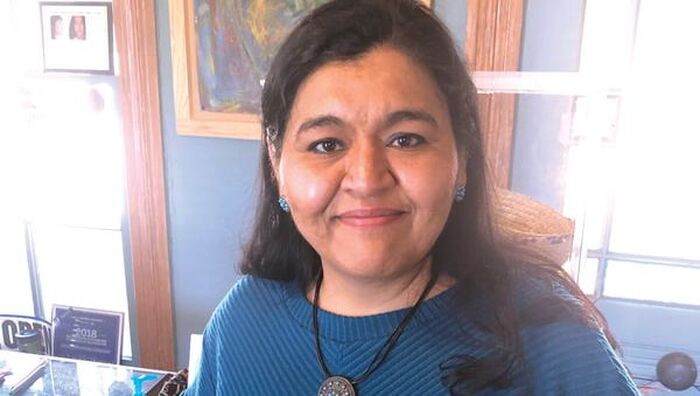
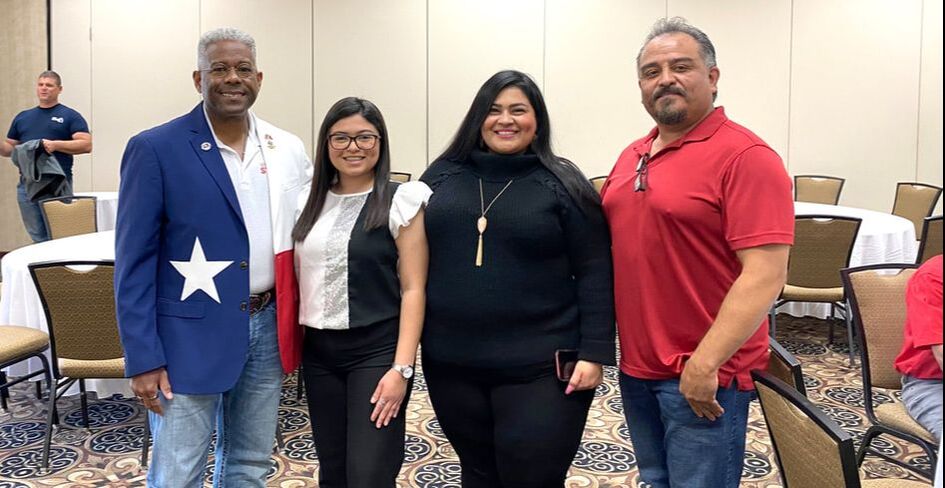
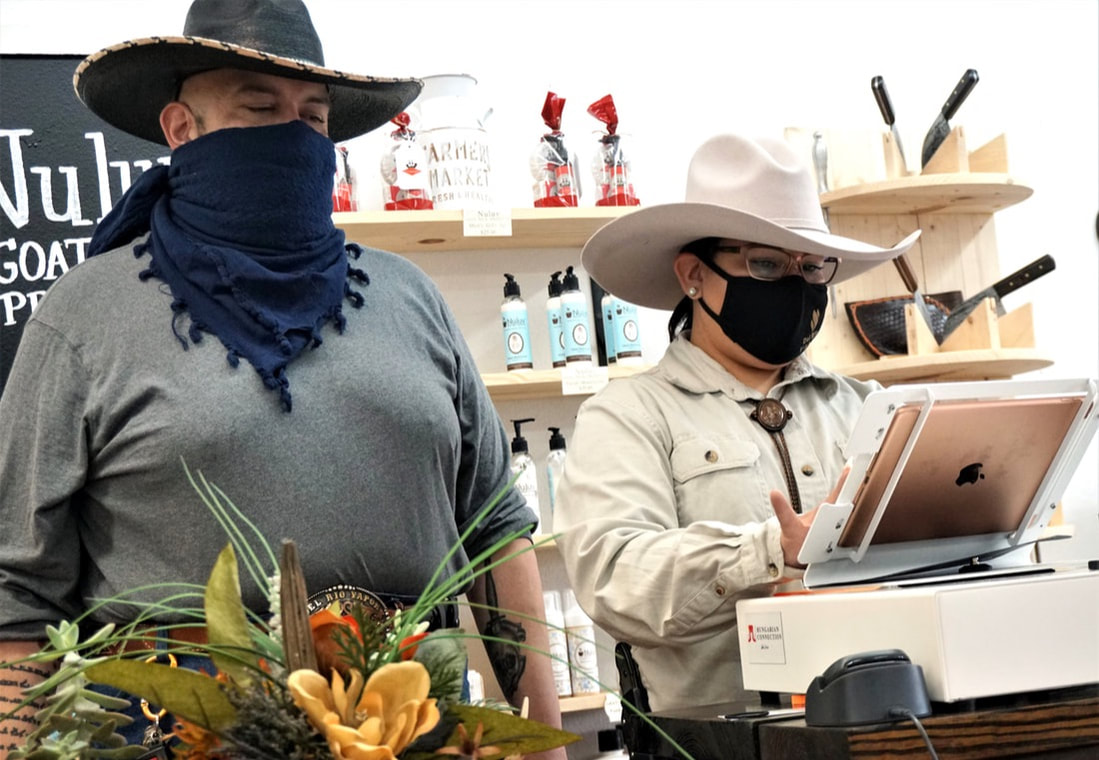


 RSS Feed
RSS Feed
